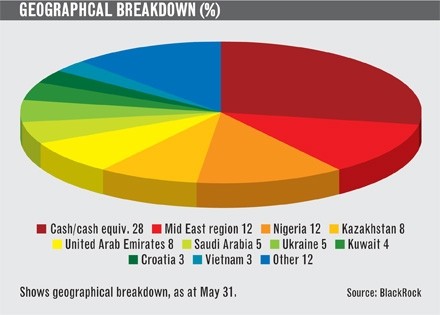Risk Outweighs Reward With Emerging Market Stocks
Post on: 28 Июнь, 2015 No Comment

In you’re looking for alternatives to the volatile and slumping U.S. stock market, think twice about emerging markets.
Tim Graham | Getty Images
Hong Kong Dollar bills featuring an image of the Bank of China Building. There are growing calls for an end to the peg with the U.S. dollar.
“It’s going to be volatile, and there’s every chance there could be a significant correction in emerging markets,” says Jon Hodgson, who runs the Sharp Peak Vega Fund under Hong Kong-based DragonBack Capital, says. “China is not being looked at with rose-tinted glasses anymore.”
The MSCI Emerging Markets index has lost 3.3 percent of its value in 2011. North American stocks, however, have performer better, posting a 2.7 percent gain.
Some say that reflects a cyclical shift, after a hot 2010, when emerging markets equities recently traded at a rare premium to their developed counterparts.
“Now we’re indeed in the phase in the cycle where that premium is slowly being squeezed out, says Louis-Vincent Gave, the CEO of Hong Kong-based research house and fund manager GaveKal
Net fund flows show investors have been moving money out of emerging markets, which lost 3.9 percent of their assets in the first quarter, according to HSBC’s second-quarter survey of 13 of the biggest fund-management houses. released on June 10.
The amount of money exiting Asia ex-Japan funds down was even greater — 4.8 percent. North American stocks saw small inflows —0.4 percent — but the biggest gains from fund funds were in bonds, with assets up 5.2 percent.
Emerging markets also slipped in popularity among managers surveyed with an approval rate of 56 vs. 75 percent in the first quarter. Greater China equities in particular have suffered, with 75 percent of managers now neutral on the area.
Inflation is the main concern. Ashley Davies, an analyst at Commerzbank, says China, India and Thailand are determined to tackle inflation through central-bank tightening, even at the expense of growth.
“Asia has got an inflation problem, and there’s been ongoing monetary tightening,” Davies says. “There’s always concern that will feed over into reduced investment.”
China is at the heart of those worries, after a dozen interest rate hikes and the reserve ratio at record high.
Credit Suisse analysts Vincent Chan and Peggy Chan expect a “sluggish landing” in China due to structural problems in the economy, particularly with debt. Total credit in the system has leaped 71 percent since 2008.
Stocks should have upside of 10 percent in 2011 and 2012, but it’s not a place for the faint-hearted, the analysts note in a June 10 report. We expect the market to remain very difficult and volatile in the next few months.
Hodgson, whose fund is trading volatility, is keen to play any sharp moves.
“The more that comes to the surface, the more that can provide a correction opportunity,” he says. The more people that understand the situation, the softer the downswing. As it’s happening it seems to be leaking out gradually, and it’s providing us with a correction.”

Concern over debt and rising interest rates have caused Chinese equities to underperformed significantly this year; the MSCI Broad China index is down 5.8 percent.
Davies expects the Chinese government to raise interest rates through this year and next, resulting in slower growth; he expects an annual rate of 7.5 percent over the next five years, down from the 9-10-percent rate of recent years.
Any slowdown will spill over into the rest of Asia, which should temper anyone expectations about stocks in the region.
“I’m not saying today that at current levels they are a screaming buy,” Davies of Commerzbank says. “Maybe we need to be realistic. I think it’s enough that they’re not a screaming sell.”
Gave notes that Asian stocks are trading at a slight premium of 5 percent to 10 percent on a price-equity basis and price-to-book basis, partly justified by the region’s higher returns on equity and stronger earnings growth.
Though emerging markets tend to move en masse as fund managers rotate into and out of them, investors are starting to see significant differences between them. Countries with strong macroeconomic pictures, strong current-account surpluses and strong budget positions such as Singapore, Malaysia and China are slowly getting re-rated.
At the other end of the scale, countries such as India, Belarus, Turkey and Brazil that are posting large budget and current-account deficits are likely to struggle. Latin America, which had outperformed last year, has suffered in 2011 as a result.
Though Gave co-manages a highly rated emerging markets fund, he recommends that U.S. retail investors in particular stick close to home for now. The risks that come with emerging-markets stocks aren’t being rewarded.
“I would just buy U.S. equities, frankly,” he says. “They’re attractively valued.”














